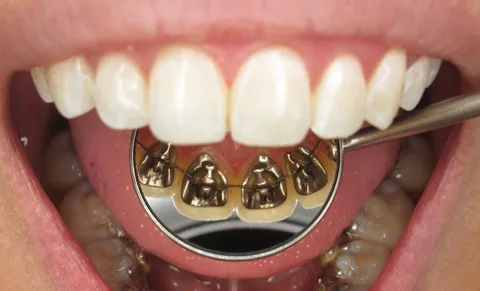Lingual Braces vs Traditional Braces: Which Option is Right for You?
Are you dreaming of a confident, radiant smile? The journey to achieving straight teeth can be an exhilarating one, but first comes the daunting decision between Lingual Braces Melbourne and traditional braces. Fear not, for we are here to guide you through this maze of options!
In this blog post, we will unravel the mystery surrounding these two types of braces and help you determine which path is best suited for your unique dental needs. Get ready to unlock your ideal smile – let's dive into the world of lingual and traditional braces!
Lingual braces are a type of orthodontic treatment that uses brackets and wires that are placed on the inside of the teeth. This type of braces is not as visible as traditional braces, making them a popular choice for adults who want to improve their smile without everyone knowing they are undergoing treatment.
There are some downsides to lingual braces, however. They can be more difficult to keep clean and can cause more discomfort than traditional braces. If you are considering lingual braces, be sure to discuss all the pros and cons with your orthodontist before making a decision.
Advantages and Disadvantages of Lingual Braces
If you’re considering braces, you may be wondering if lingual braces are right for you. Lingual braces are placed on the back of your teeth, making them invisible from the front. This can be a big advantage if you’re concerned about how traditional braces will affect your appearance.
Lingual braces can also be more comfortable than traditional braces, as they don’t rub against your lips and gums. And because they’re less visible, lingual braces can be a good option for adults who are self-conscious about wearing braces.
However, lingual braces can be more difficult to clean than traditional braces, and they can also cause more discomfort at first as your tongue adjusts to them. In addition, lingual braces are more expensive than traditional braces.
Advantages:
-They are very effective at straightening teeth
-They are less visible than other types of braces
-They are less likely to cause mouth irritation
-They offer a wide range of customization options
Disadvantages:
-They can be uncomfortable, especially when first put on
-They require more time and effort to clean properly
-They may cause temporary speech impairments
How to Choose Which Option is Right for You
When it comes to deciding between lingual braces and traditional braces, there are a few things to consider. Here are a few factors that can help you decide which type of braces is right for you:
- Treatment time: Lingual braces typically take longer to adjust to than traditional braces, but the treatment time is generally shorter overall.
- Cost: Traditional braces tend to be less expensive than lingual braces.
3. Appearance: If you're concerned about the appearance of your braces, lingual braces may be the better option since they're hidden behind your teeth.
- Comfort: Some people find traditional braces more comfortable than lingual braces, while others find them equally comfortable. It's really a matter of personal preference.
- Lifestyle: If you play sports or participate in other activities that could damage traditional braces, lingual braces may be a better option since they're more resistant to damage.
Conclusion
Lingual braces Melbourne and traditional braces are both designed to help improve your oral health, but there are differences in how each approach works. Ultimately, the most important factor when deciding between lingual braces vs traditional braces is determining which option is best suited for your specific needs.
Regardless of what you decide on, it’s essential that you discuss the pros and cons with an experienced orthodontist in order to ensure that you make an informed decision about which type of braces will be right for you.

Comments
Post a Comment